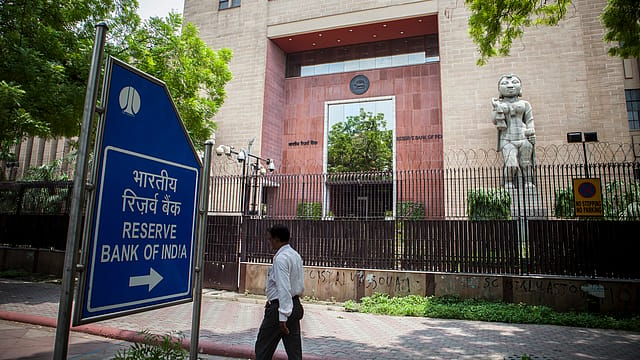New trade deals with US, EU, others may support growth: RBI’s annual report
ADVERTISEMENT

India's export sector is also expected to encounter some headwinds from rising geopolitical tensions, inward-looking policies, and the risk of a potential tariff war among major economies, according to the Reserve Bank of India (RBI). However, India’s participation in 14 free trade agreements (FTAs) and six preferential trade agreements (PTAs), along with the new trade deals under negotiation with the US, Oman, Peru and the European Union (EU) may support growth in trade, the central bank said in its annual report for the financial year 2024-25.
Resilient services exports and inward remittances are likely to cushion India’s current account deficit (CAD), which would remain eminently manageable in 2025-26, the RBI said.
Global merchandise trade volume is projected to contract by 0.2% in 2025 based on the tariff situation as of April 14, 2025, the central bank said. “However, the signing of a trade deal between the US and the UK on May 8, 2025 and the agreement made by the US and China on May 12, 2025 to avoid retaliation and to engage in future discussions augur well for global trade, going ahead,” it added.
The banking regulator cautioned that financial markets may exhibit sporadic episodes of volatility triggered by turbulent global financial markets in the wake of heightened uncertainty regarding the evolution of trade tariff policies.
Domestic financial markets remained resilient during 2024-25 amidst an uncertain global environment. Government security (G-sec) and corporate bond yields declined over the year, leading to an increase in corporate bond issuances. Domestic equities surged in the first half, scaling fresh peaks before declining in the second half amidst concerns over slowdown in GDP growth and corporate earnings growth, tariff policy uncertainty and foreign portfolio investment (FPI) outflows. Primary market activity remained upbeat in 2024-25 although it moderated in Q4, the RBI said.
In 2025-26, markets will closely track the implications of tariff policies of the US and reciprocal measures by others, as an uncertain policy environment may instil volatility in global financial markets, said the RBI. “Following a correction in the second half of 2024, Indian equity markets are expected to remain resilient amidst stable macroeconomic conditions and moderation in equity market valuations, although geopolitical uncertainty poses downside risk. Resource mobilisation through primary market is expected to regain momentum as secondary market sentiments stabilise. In the short run, however, markets may experience volatility reflecting global policy uncertainty,” it warned.
The Indian equity market witnessed fresh highs in the first half of FY25 whereas the second half exhibited a sharp correction on account of a set of factors such as shifting expectations on global monetary policy trajectory, tariff policies in the US and lingering geopolitical tensions in the Middle East and Europe.
“Going forward, global financial market volatility, geopolitical tensions, trade fragmentation, supply chain disruptions and climate-induced uncertainties pose downside risks to the growth outlook and upside risks to the inflation outlook,” the RBI cautioned.
It, however, said that the Indian economy is poised to remain the fastest-growing major economy in 2025-26 by leveraging its sound macroeconomic fundamentals, robust financial sector and commitment towards sustainable growth.